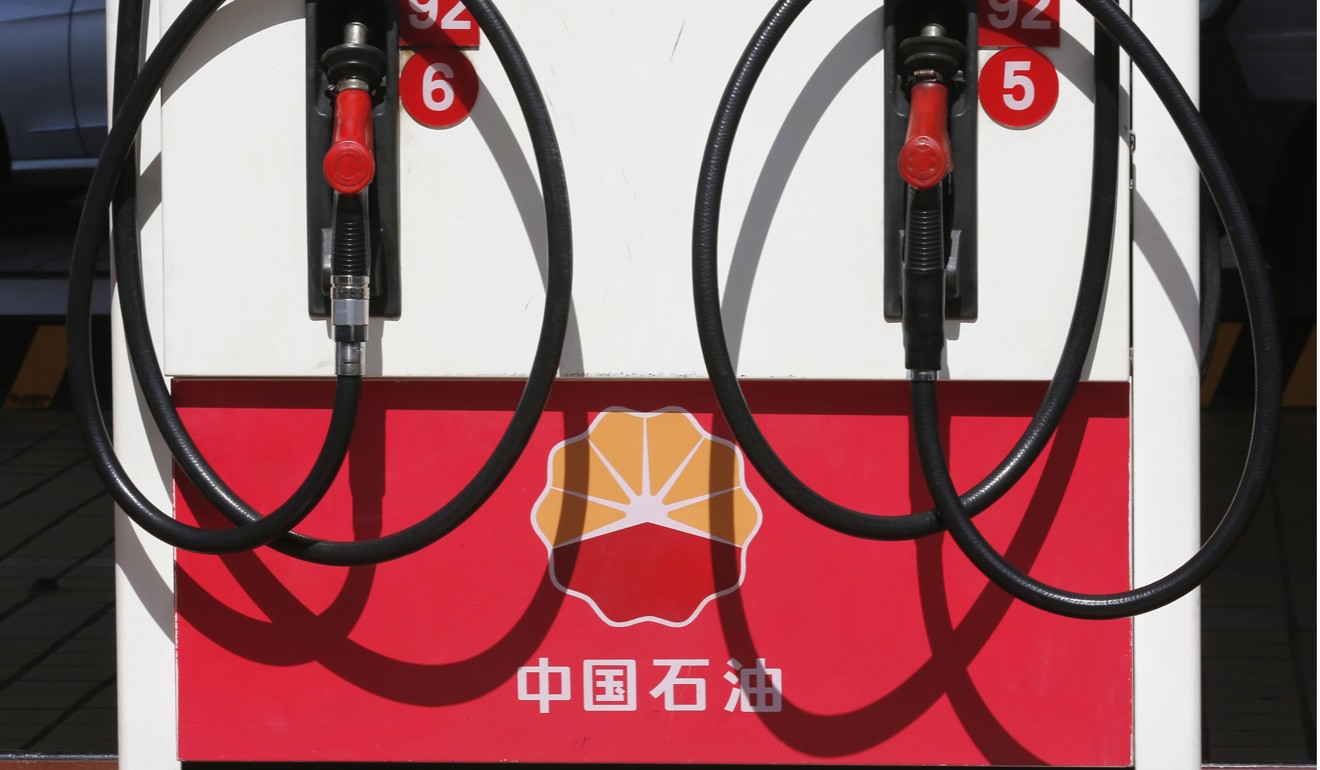
Buying China’s rust belt industries helped this one top fund manager beat out 98 pc of rivals
Fund manager Qiu Dongrong bought out of favour industries burdened with excess industrial capacity-- now they’re helping underpin a 35 pc return in the past year
Earnings growth doesn’t matter all than much when its comes to picking stocks for fund manger Qiu Dongrong, who believes low share prices are a better guide to building a portfolio.
The money manager’s approach of buying cheap Chinese stocks with little growth potential has paid off over the past year. In fact, bets on out of favour stocks such as China Petroleum & Chemical and Daqin Railway have enabled his fund to beat out 98 per cent of rivals, according to Shanghai-based fund tracker Howbuy.
“These traditional industries may not have good growth, or even no growth,” said Qiu, a fund manager at HSBC Jintrust Fund Management. “However, some companies are severely undervalued against fundamentals and the stock prices have already reflected the worst scenario. We’re particularly watching these companies.”
His 4.8 billion yuan (US$706.17 million) HSBC Jintrust Large Cap Equity Fund has returned 35 per cent over the past 12 months, compared with an 11 per cent gain on the benchmark Shanghai Composite Index during the period.

Qiu’s strategy of snapping up out of favour equities turned out to a winner thanks to a liquidity squeeze that put the shine back on larger companies with stable earnings.
An index of the 50 most valuable companies on the Shanghai exchange rose to its highest level in 19 months this week, putting it on track to outperform the ChiNext gauge of smaller firms for a second straight year.
The rally in large, state-owned companies, many of which are engaged in traditional industries with excess industrial capacity, is in full swing even as China is in transition towards services and technology as growth drivers.
Among the fund’s top holdings are China Petroleum, also known as Sinopec, Beijing New Building Materials and Huaxia Bank, according to fund data at the end of the first quarter.
Sinopec, China’s biggest oil refiner, has gained 12 per cent in Shanghai this year and Beijing New Building is up 44 per cent.

Qiu, 33, formerly an analyst from Capital Securities, said he weighs up investments using valuation metrics of price-to-book-value and return on equity, although he declined to provide specifics on when the indicators provide a buy signal.
As the deleveraging trend continues, Qiu says he plans to dig into other sectors overlooked by investors, such as brokerage, petrochemical and construction material companies, he says. Financial brokerages are trading at 1.3 times book value, a level close to their historical low. This indicates that negative factors have already been reflected in the share price, implying little room for downside. Meanwhile, excessive pessimism towards the petrochemical and construction material sectors suggests a turnaround could be in store once corporate competitiveness or industry demand improves, according to Qiu.
Huatai Securities was the only brokerage among his top 10 holdings in the first quarter. The Nanjing, Jiangsu province-based company is valued at 1.4 times book value, the lowest in the sector after Citic Securities and Guoyuan Securities, according to data compiled by Great Wisdom. The stock has almost halved from its peak in 2015, shortly after the mainland equity bubble burst. It is down 3.1 per cent in Shanghai this year. Earnings for Huatai may increase 16 per cent in 2017 on year, according to Great Wisdom.

After a 10 per cent rally this year, the SSE 50 Index of the 50 biggest companies on the Shanghai bourse is valued at 11.6 times reported earnings, about 30 per cent cheaper than the benchmark Shanghai Composite Index tracking all 1,331 stocks on the bourse.
Buying interest will probably continue to concentrate on big-caps as economic growth cools in the second half amid slowing loan expansion and property investment, according to Bocom International Holdings.
“Big caps’ outperformance is pointing to moderating economic growth ahead, as it has been in the past,” said Hong Hao, head of research at the Hong Kong investment banking unit of Bank of Communications. “In a slowing economy, investors are buying big caps for their earnings quality, visibility and cash flow.”
Qiu says he focuses on valuation as an indicator for when it is time to trim a holding.
“We’ll gradually pare holdings of stocks that are overvalued after the rally,” said Qiu. “We’ll also actively watch for opportunities in middle-and small-cap stocks that are severely underpriced against their values in the recent round of corrections.”

